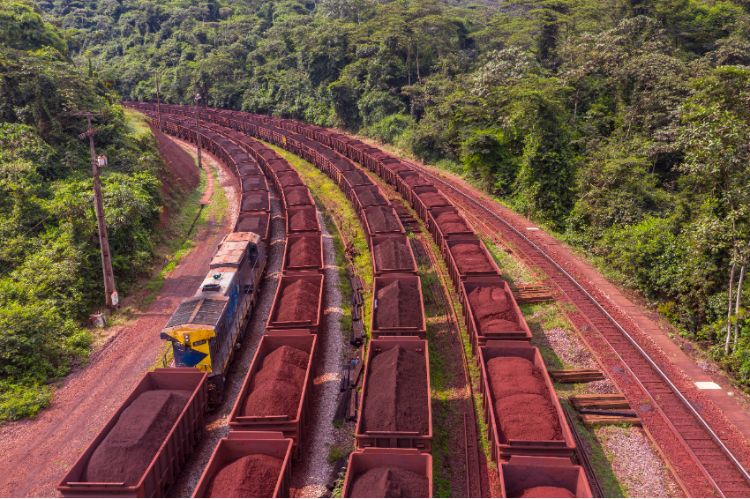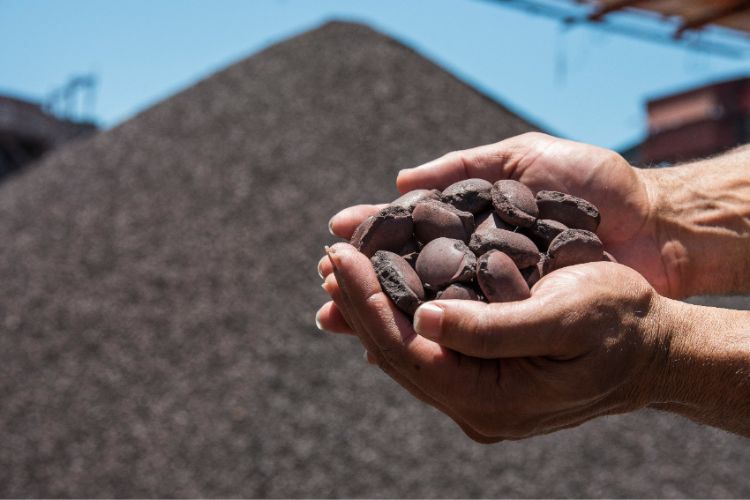Our world is unmistakably complex, and amid that complexity our generation confronts an urgent challenge: climate change and its widespread impacts on people and nature. At the same time, it also opens an unprecedented industrial and diplomatic opportunity. The integration and diversification of value chains can deliver both competitiveness and deep decarbonisation if public and private actors align around clear technologies, reliable supplies, and ambitious partnership models.
A low carbon future is inconceivable without mining, which underpins both economic growth and environmental stewardship. Minerals are essential to modern life, from artificial intelligence processors and electric vehicle batteries to wind turbine towers and everyday devices such as smartphones.
This key role of mining will only further increase as we globally advance towards an energy transition agenda. The future of the sector is understanding its imperativeness to decarbonisation, which is not only an investment option, but a strategic opportunity.
Mining is frequently framed as the origin of supply chains, yet it sits at the heart of industrial transformation. The steel sector is among the hard-to-abate ones and currently accounts for roughly 8% of global CO₂ emissions. Any credible pathway to industrial decarbonisation must therefore place mining and steelmaking at the center of strategic planning.
 Iron ore transportation across mines, ports, and terminals. Credit: Ricardo Teles
Iron ore transportation across mines, ports, and terminals. Credit: Ricardo Teles
Companies must lead by presenting economically sustainable projects with clear environmental benefits. In this context, the private sector plays a pivotal role—not merely as an implementer, but as a driver of meaningful transformation. While the journey is marked by significant challenges, the sector’s enduring commitment is grounded in robust research and sustained by open dialogue with all stakeholders across the value chain.
For Vale, decarbonisation is our business. We invest in technologies such as the briquette, which enables our steel customers to reduce CO₂ emissions in steel production via blast furnace route by up to 10%. When we consider the direct reduction route fueled by natural gas, which uses electric arc furnaces instead of coal-fired blast furnaces, the emissions reduction might reach 60%. We are committed to being part of the solution, developing viable paths to a low-carbon economy.
Collaboration is the indispensable catalyst for delivering measurable progress on this path. Vale was the first mining company to publicly disclose Scope 3 goals, stimulating the design of tailored solutions that help our customers decarbonise their operations.
Minerals are essential to modern life, from artificial intelligence processors and electric vehicle batteries to wind turbine towers and everyday devices such as smartphones
Vale, in collaboration with partners and government authorities, is leading efforts to produce Hot-Briquetted Iron (HBI) in Brazil and other regions of the world using green hydrogen and natural gas, which can be a key enabler for the production of competitive green steel in the European Union. This is what we call the ‘Mega Hubs’, industrial complexes designed to manufacture low-carbon steel products. Such model creates resilient low-carbon supply corridors, adds domestic industrial value and supports demand for low-carbon products at an affordable cost through diversification, benefiting all economies involved and delivering substantially lower emissions.
International partnerships are therefore essential to move decarbonisation from commitments to large scale implementation. Over time, we expect green products to gain efficiency and scale, which will enhance their competitiveness. Recognizing the complexity of the task today and channeling investment into solutions that marry economic viability, scalability, and environmental performance is critical to success.
Still, current global dynamics indicate that the challenge to ensure competitive prices without compromising sustainability remains. Macroeconomic and fiscal pressures are affecting demand for low‑carbon options, and energy‑intensive industries such as steel face substantial technical and financial challenges to transition.
 Iron ore briquette is the result of 20 years of research and development. Credit: Gabriel Lordello
Iron ore briquette is the result of 20 years of research and development. Credit: Gabriel Lordello
Policy frameworks matter. Multilateral cooperation, predictable regulation, and trade agreements that reduce friction are critical enablers. Scalable low emission steel depends on three interdependent elements: high-grade iron ore, clean energy at scale, and political and corporate will to implement disruptive change. High-quality ore improves process efficiency; clean and abundant energy enables new and lower-carbon routes; and public and private leadership is essential to mobilize investment and derisk first movers.
Brazil and the European Union are natural partners in this transition as Brazil is positioned as a key supplier of decarbonisation solutions for European industries, particularly in energy-intensive sectors like steel. While Brazil contributes with its high-grade ore and significant renewable energy potential, the EU brings industrial demand, advanced manufacturing capabilities, and strong climate policy frameworks. The European and Brazilian business and government communities share a common understanding that industrial competitiveness and climate action are positively connected and reinforce each other. By coordinating trade, technology transfer, and finance, both sides can accelerate the adoption of direct reduction technologies into steelmaking. By aligning trade, technology, finance, and dialogue, we can create shared prosperity and meet climate goals.
As COP30 approaches, these discussions are deeply connected to the call made by the COP30 Presidency for stronger global cooperation. One of the many legacies of Brazilian culture originating from the indigenous peoples of Brazil is the concept of “mutirão,” a word from the Tupi-Guarani language. This term refers to when a community comes together to work on a shared task, such as harvesting, building, or supporting one another. The COP30 Presidency has invited the international community to join Brazil in this global “mutirão” against climate change, in a joint effort of cooperation, action, and ambition.
There is a clear alignment between Vale’s priorities and Brazil’s national agenda – from industrial decarbonisation to the sustainable development of the Amazon and other regions through nature-based solutions, from a just energy transition to the responsible stewardship of our natural resources. In this context, Vale stands ready to be a strategic partner in advancing this transition and contributing to a more sustainable and inclusive future.
Sign up to The Parliament's weekly newsletter
Every Friday our editorial team goes behind the headlines to offer insight and analysis on the key stories driving the EU agenda. Subscribe for free here.